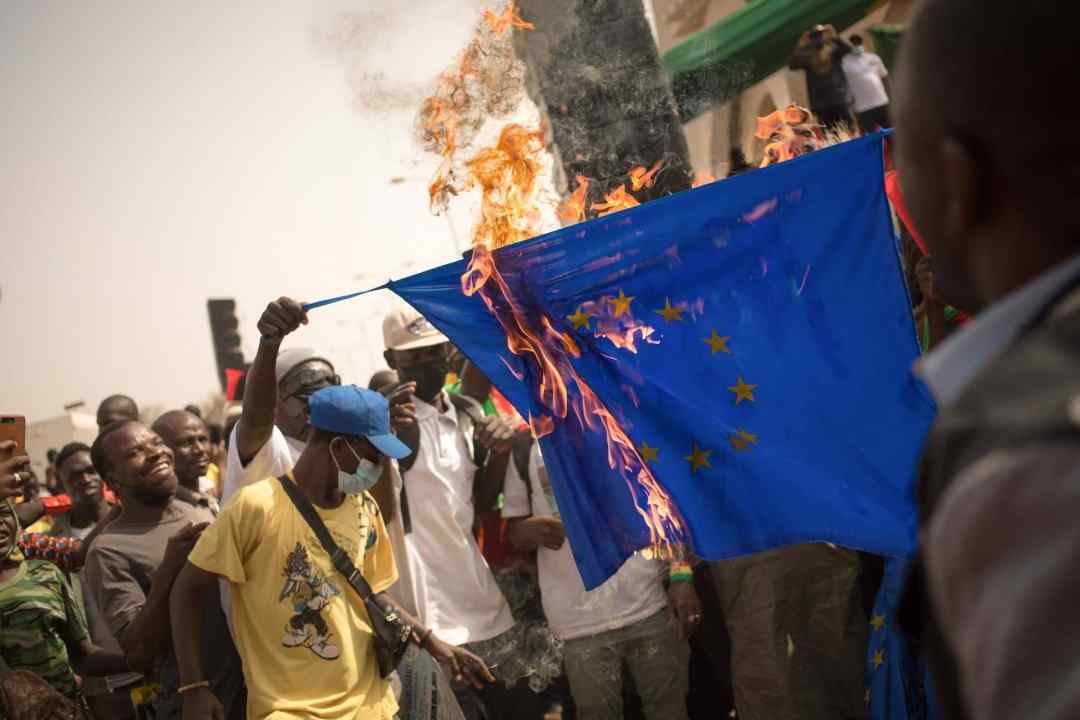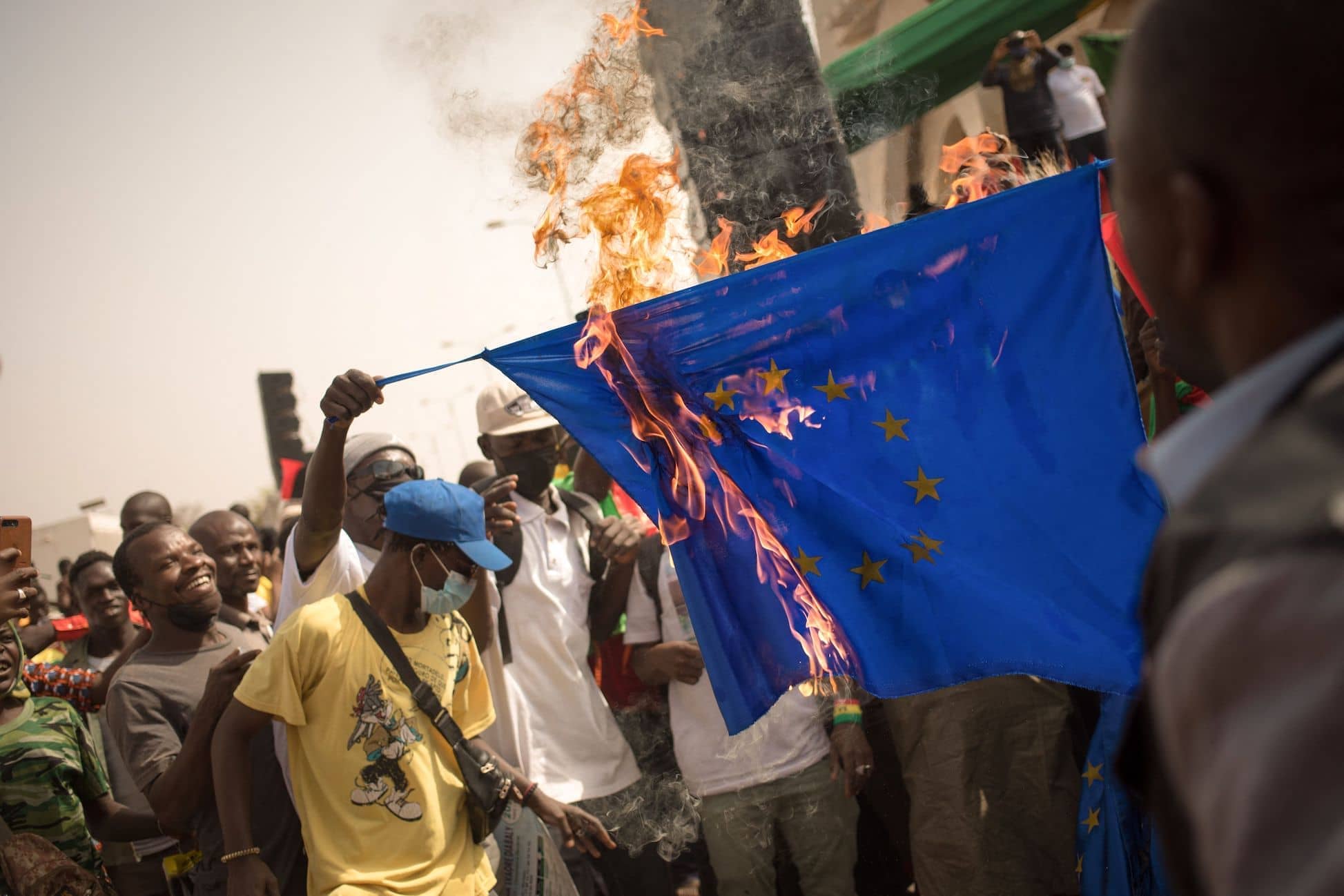While the world is focused on Ukraine, Emmanuel Macron has withdrawn all French forces from Mali. Last weekend, thousands of soldiers were flown out of the former French colony after nine years of fighting Islamist insurgents in the Sahel. Malian protesters bid the French soldiers farewell by shouting ‘Shit to France’ at the departing planes.
Following a military coup in May, Mali’s ‘interim President’ Colonel Assimi Goïta began to tire of the French and their calls for free elections. There were also lingering doubts over France’s motivation, stoked by a Russian disinformation campaign. So Goïta began looking for allies who could provide him with muscle to fight the Islamist insurgency without any lectures about democracy. He found such an ally in the Wagner Group.
Macron said last week that the deal between Wagner and the new Malian regime was behind his decision to withdraw troops. Wagner, he explained, was ‘arriving in Mali with predatory intentions… Because the junta which is in power after two coups d’etats considers them to be the best partners they can find to protect their power, not to fight against terrorism.’
In theory, Wagner is a private mercenary company. In practice, it’s part of Putin’s wider apparatus
In theory, Wagner is a private mercenary company. In practice, it’s part of Putin’s wider apparatus — able to set up shop in several countries, lending advanced technical equipment, advisers and hundreds of troops. Sergei Lavrov, Russia’s foreign minister, says the presence of a thousand Russian mercenaries in Mali is a matter of business, not government policy.
Formed during the 2014 Ukraine crisis and later used during the Syrian civil war, the Wagner Group is an arms-length tool of the Kremlin’s geopolitical arsenal. Ninety-five per cent of its recruits come from Russia (with a smattering of Serbs and Abkhazians). The group is believed to have somewhere between 3,000 to 5,000 contractors on the African continent. They are armed by the defence ministry and trained on a special forces base — but still, officially, independent. When their men die there is no official funeral, no flag-draped coffin, nothing to disturb a sceptical Russian population.
The consensus is that the man in charge of Wagner is Yevgeny Prigozhin. The former hot dog salesman turned multi-millionaire, he’s one of the Kremlin’s go-to businessmen. When they need something done, from running the infamous disinformation troll farms to bankrolling mercenaries, they turn to Prigozhin. So long as he does what he is told, lucrative government contracts follow.
Wagner can be found today in all manner of authoritarian countries across Africa: Yemen, Libya, Sudan, Mozambique, Madagascar, and the Central African Republic. Sometimes, they have proven unimpressive. In Mozambique, for example, they originally provided personal security for President Filipe Nyusi, but in 2019 they sent several hundred soldiers to fight the al-Shabab insurgency. Wagner won the contract through political connections and bargain-basement pricing, but inexperienced in bush warfare, they quickly withdrew.
Elsewhere, their record is more solid. In the Central African Republic, some 2,000 Wagner troops foiled a rebel offensive last year and now provide the regime with soldiers capable of fighting back jihadi rebels.
Many of Wagner’s soldiers were previously marines, paratroopers or Spetsnaz commandos. As one British army officer who had contact with them in Mozambique told me, ‘some of them are just cowboys, but the best of them are real professionals’. The group’s cosy relationship with the Kremlin brings its own perks, like training bases on army land; the provision of military transport (which airlifted its force to Mali); and access to modern weapons at cost.
Unlike Xi, Putin has no grand Africa strategy: his motives are opportunistic. Russia sees the West in retreat and knows that China hasn’t snapped up everything worth taking. They sniff around as cynics do: had the French not hit trouble in Mali, then Wagner wouldn’t be there, just as the French exit from the Central African Republic opened the way to Wagner in 2016.
At a time when UN Secretary General António Guterres is warning that Africa is facing ‘an epidemic of coup d’états’, there seems to be plenty of business for the Wagner Group — and plenty of opportunity for Russia.








Comments